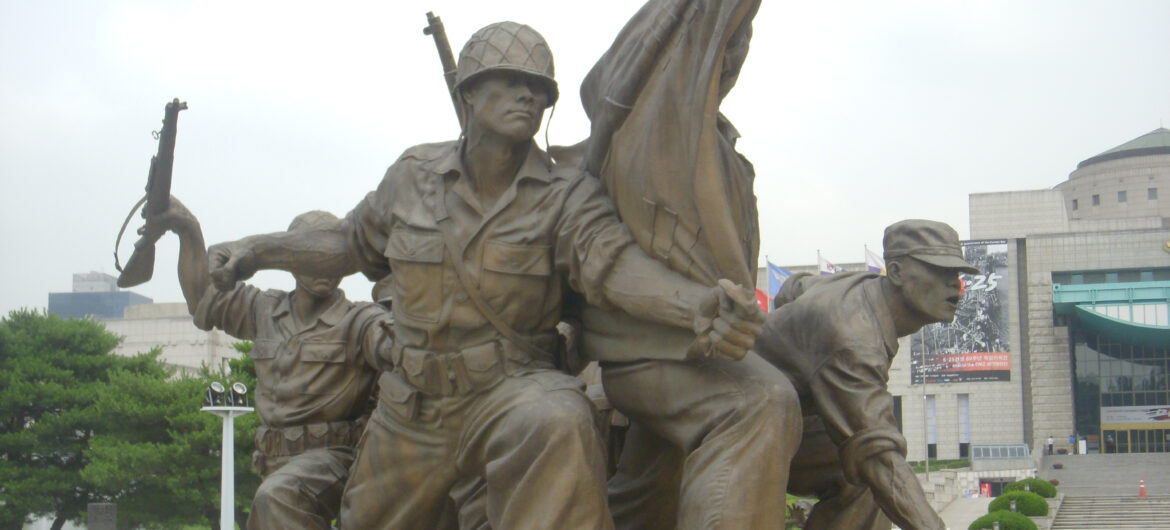Words by Ritika Srivatsan, News Print Editor
South and North Korea, the United States and China have agreed in principle to declare a formal end to the Korean War, stated the South Korean President Moon Jae-in during his four-day visit to Australia in December. Ending in only an armistice and not a peace treaty, the Korean war ended in July 1953 but technically, the two countries are still at war.
Speaking at the United Nations General Assembly in September 2021, Moon said that a formal declaration would “mark a pivotal point of departure in creating a new order of reconciliation and co-operation on the Korean peninsula”, a move frequently spoken of but steeped in endless diplomacy between Seoul, Washington, Pyongyang and Beijing. Moon admitted that action regarding the peace declaration was being held back due to North Korea wanting the US to end hostility as a precondition.
Moon’s proposition was entrenched in the idea that the peace declaration is a symbolic gesture rather than a legally binding act. “Koreans have long aspired for peace, prosperity and unification. I will continue to make efforts to institutionalise sustainable peace, and I won’t stop that until the end of my term”, said Moon in one of his new year addresses of 2022.
With Moon’s presidency coming to an end in May, his quest for peace seems unlikely since international entities involved are unable to agree over the timing and the necessary preconditions they each insist upon. Go Myong-Hyun, a senior fellow at the Asan Institute for Policy Studies in Seoul believes that Kim Jong Un, North Korea’s Supreme Leader, is questioning the point of signing an end-of-war declaration when a new president will be elected in a few months.
North Korea’s shaky relationship with the US does not make it easier as the former has continued developing nuclear and ballistic missiles, thereby breaching UN sanctions. Despite Moon strongly advocating that the declaration will bring an end to the nuclearization of the Korean peninsula, experts remain divided.
Moon Chung-in, a former special adviser for unification, diplomacy and national security affairs for the President said, “The proposal represents an effort to end the impasse, increase confidence between the parties and build towards a breakthrough on the issue of the denuclearisation of the Korean peninsula”. Kim Jong-un’s influential sister, Kim Yo-jong, also previously expressed that she thought of the treaty as “interesting and admirable”.
However, the US has not yet confirmed its level of support. Washington is concerned that the declaration will mean viewing North Korea as a “friendly” nation whilst also normalising the regime’s severe autocracy. An end-of-war treaty could also undermine the US’ military presence in the region. National Security Adviser Jake Sullivan said last October that Seoul and Washington “have somewhat different perspectives on the precise sequence or timing or conditions” of the proposed declaration.
China plays an important role in the peacekeeping process given its extensive history with Korea both when divided and unified. Despite China’s strong alliance with North Korea, President Xi-Jinping has repeatedly said he endorsed the idea of a declaration and is impelling his North Korean counterpart to do the same.
While South Korea and the US reportedly happen to be in the last stages of framing a draft declaration, the pathway is dotted with uncertainty due to differing interests.





